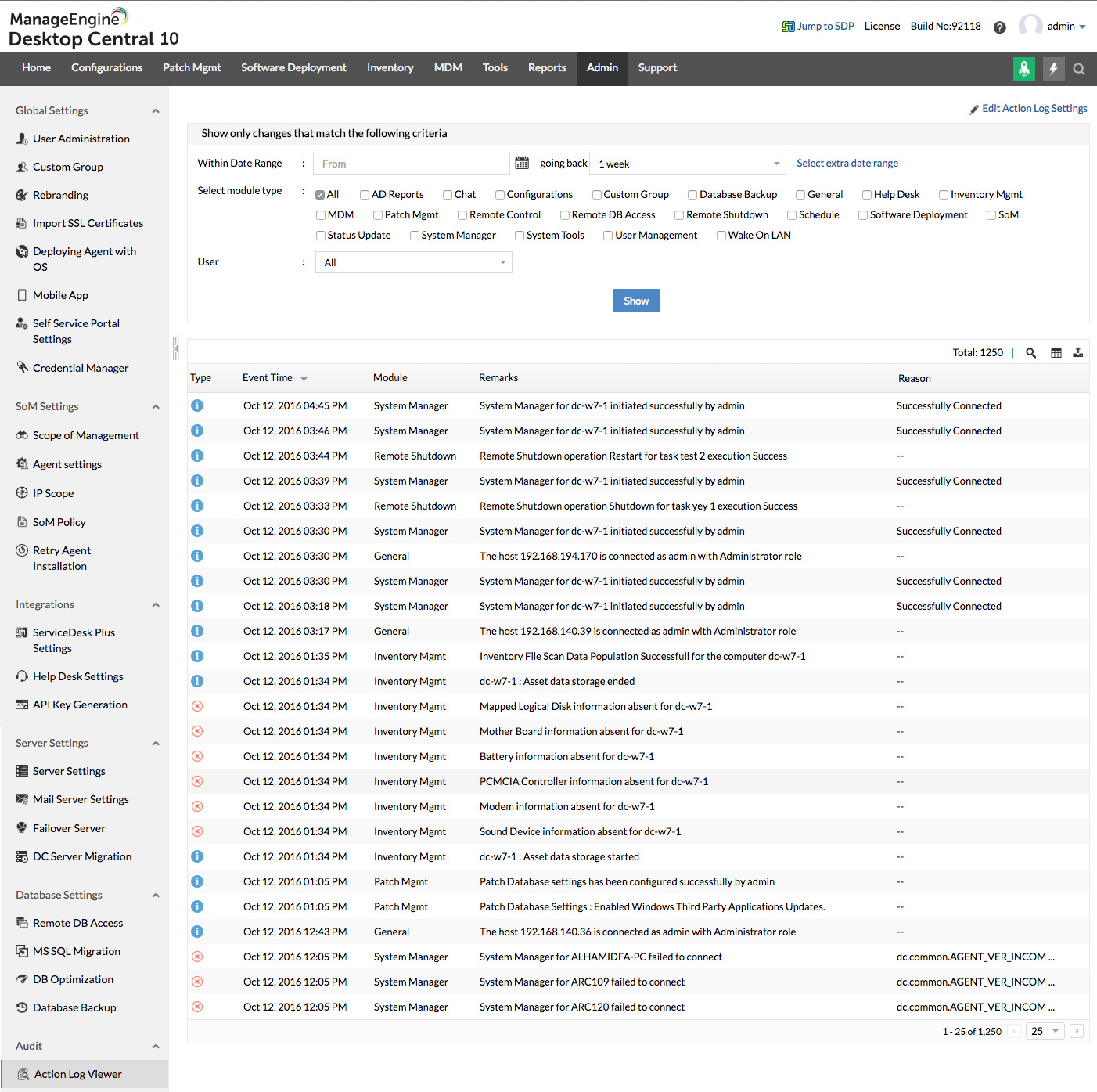With the inclusion of role-based administration, it is more likely that different users will have different access levels in Central Server application. It is very important for the administrator to review the changes done by all the users periodically and ensure that everything is smooth. The Action Log Viewer logs every action performed by all the users along with date and time.
Configure Action Log Viewer:
The admin can filter the data into user-wise and module-wise for easier analysis. Here's how:
The logs will be maintained for specific number of days. The maximum number of days in 750. You can configure the action log settings by:

This feature is not applicable for Cloud
The name of the device that is used to access the Central Server Console can also be tracked for auditing purposes. This can be done by configuring Central Server's Action log viewer. To enable this feature:
Note: The host name may not be retrieved perfectly in all cases due to few security configurations in certain networks. In such conditions, the IP Address of the device will be displayed.
Navigating to Admin -> Audit - >Alerts will display a list of Central Server alerts. It is determined by the alerts you have configured throughout the product at various locations. You can filter the alerts based on various parameters such as date range, module type, alert type and alert level.
To know more about alerts, click here.